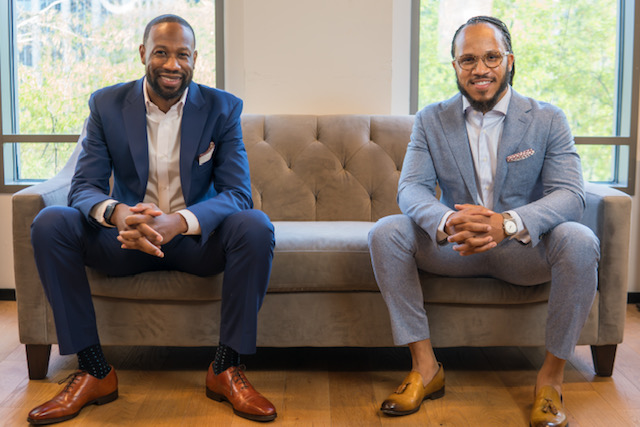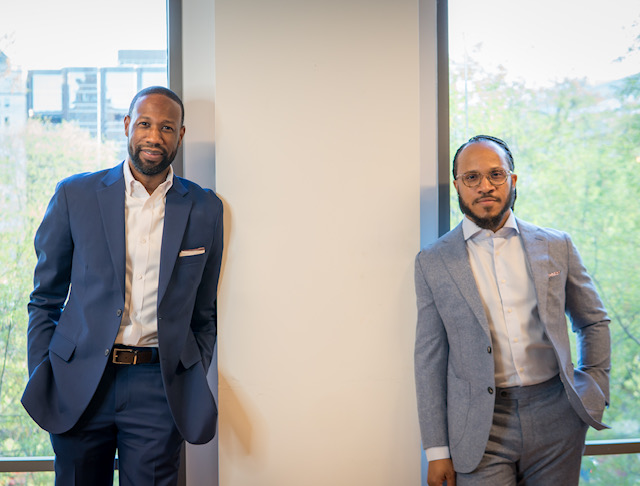High Street Equity Partners closing equity gap in VC space
The $15 million fund is investing in underrepresented founders from underrepresented communities
In the United States, only 1% of venture capital funded startup founders are Black.
The dismal number leads one to wonder if the disproportionate allocation of funds to help Black and Brown businesses grow could be preventing them from expanding to household names. With the tragic murder of George Floyd opening the eyes of many in America to the inequity occurring in the “land of the free,” organizations are fighting back with their dollars.
In the investment world, VCs are creating funds specifically for Black entrepreneurs and interested in supporting more Black founders. However, there are investors like Mitch Brooks and Tristan Wilkerson, who have invested in Black businesses for over a decade. The long-time friends are widening their impact and doubling down on their expertise to help close the multiple gaps in the VC world.
Everything about the men and their mission is filled with purpose. The creation of High Street Equity Partners is a dream realized for Brooks and Wilkerson. The name bears meaning from Wilkerson’s Southern roots.
Read More: Shark Tank’s Daymond John talks evolution of FUBU, importance of small Black businesses

He shared, “The name, High Street, is a historic street name in Little Rock, Arkansas. It was the center of business and innovation and where a lot of Black and minority businesses were concentrated. The name is a homage to the vision and goal of the firm.”
Now renamed to Martin Luther King Jr. Avenue, this street is where Wilkerson’s late grandfather and grandmother, his uncles, and brother all lived at one point in time. In many ways, no matter the city or state, MLK Boulevard or Street represents Black lives and culture. The name High Street, Wilkerson adds, is a daily reminder for them to “stay close to the ground and knowing where we come from and who came before us to get us to this point.”
Brooks and Wilkerson met in Washington, D.C. and have been friends and investment partners for over a decade. Uniting their diverse backgrounds, they have created a fund under the principles of purpose and community. Brooks grew up in Washington, D.C. and attended FAMU.
Upon graduation, he worked at Caterpillar in between their Miami and Chicago office. Brooks’ mother was diagnosed with cancer and he returned to D.C. to be close to support her through the treatment process. His mom recovered shortly before Barack Obama was elected and when he saw how “electric” the city became with the first Black president, he stayed.
Brooks continued to work for Caterpillar and rose in ranks within the firm.
He explained, “Once I became partner, I started to get partner distributions and dividends. Some people take their money and they buy vacation homes and boats. For me, when I got my partner distribution, I started to invest in businesses and small businesses in D.C. Metro, where I’m from, because I wanted to give back to the city and be part of the city’s thriving.”
While angel investing in D.C., Brooks met Wilkerson, a veteran political organizer and policy professional working on Capitol Hill. Before long they began making investments together as angel investors.

Between the pandemic, the social unrest of 2020 and the push towards racial equity, Brooks shared, “I just felt really moved to do something in the formal investment vehicle and I spoke to Tristan about that and we started to do our due diligence and here we are today.”
While many may be looking at all the businesses that have failed, Brooks and Wilkerson are focused on the opportunity. Brooks theorized, “If you had a solid business model and if you were a good business operator, then the pandemic accelerated things for you and moved your revenue model up five to 10 years.”
Restaurants that got creative by adding takeout kits and family packages saw a rise in sales, while digital companies like online retailers also saw benefits. He adds, “I strongly believe that there are many businesses in this moment, Black-owned, minority-owned, that had a really solid business model. The reality is they need support and funding to keep up with their growth and how they are scaling, and they aren’t able to get their fair share of that like others.”
Wilkerson, who is also the founder of Think Rubix, a social innovation consultancy, is familiar with creative problem-solving. This moment positions minds like his to thrive by coming up with action-based solutions and he’s using it to help others. He sees this moment as a mandate, as well as an opportunity.
Wilkerson expatiated that it’s more than just investing, “Mitch and I are looking at this as ‘How do we shape the future? How do we empower founders of color, women founders to not just be able to build wealth, but to be able to take their rightful place in contributing their goods, services, technology, etc. to the marketplace?’”
The two businessmen are solely interested in investing in what they consider to be underrepresented founders from underrepresented geographies with businesses that accrue $100,000 in annual revenue. A 2018 investment report from PwC and CB Insights shares that four states (California, Massachusetts, New York, and Texas) control over 80% of venture capital dollars. High Street Equity Partners is focused on closing this gap.

Read More: Vernon Jordan paved the way for Black leaders in business and politics
Brooks shared, “We have an affinity in the space for often overlooked, small and medium enterprises. We hope that they see akin in us and that they can connect and resonate with one another in that regard.” The firm will bring not only financial support but also the two will use their operational expertise as business operators, as well as their policy expertise, to help these businesses scale.
They encourage founders to be their “authentic selves” when pitching to their firm or any potential business partner. Wilkerson, a self-proclaimed “accidental entrepreneur,” advised, “Knowing the nuts and bolts [of your business] is important but that’s not the magic. The magic is in being able to form connection, and I think that connection rests in letting folks know all about you and knowing that you know yourself. Showing up as yourself is going to get you a lot further to your goals than anything else.”
Brooks and Wilkerson have a goal of investing in 10 companies within their first year of operation.
If you want to be part of the change and closing the gap and are a family office, a high net worth individual, or leading an institutional fund, High Street Equity Partners is currently engaging in conversations to help manage your money with purposeful investments.
If you are a BIPOC founder and your company is not in one of the states mentioned above and you are looking for resources—consider this your sign. Apply here to pitch.
As our conversation comes to a close, Brooks’ eternal optimism looks past the pandemic, “I believe that out of this crisis, there will be a huge growth of innovative entrepreneurs and innovative companies to come out of it and we want to be there to help support them.”
Have you subscribed to theGrio’s new podcast “Dear Culture”? Download our newest episodes now!
TheGrio is now on Apple TV, Amazon Fire, and Roku. Download theGrio today!
More About:Business









